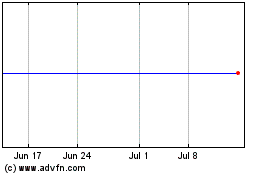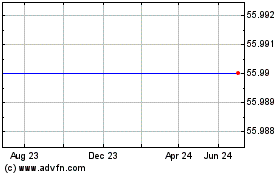By Rolfe Winkler and Aaron Tilley
Microsoft Corp.'s $16 billion deal for Nuance Communications
Inc. is the latest sign that the next battleground for technology
giants will be in healthcare, an industry whose need to embrace
data and software was underscored by the pandemic.
The acquisition will help Microsoft tap into Nuance's big
business selling its software to healthcare systems, according to
analysts and healthcare executives. Speech-recognition software
like that developed by Nuance is emerging as an important new
opportunity in medicine as doctors seek to speed up documentation
of patient work with dictation rather than getting bogged down
taking notes, executives said.
"This coming together is about empowering healthcare," Satya
Nadella, Microsoft's chief executive, said in an investor call.
"It's now very clear that healthcare organizations that accelerate
their digital investments can improve patient outcomes and reduce
cost at scale."
The pandemic helped showcase healthcare's potential as a growth
area for tech companies, such as the boom in telehealth services.
Microsoft will have an ability to use Nuance as a means to sell
healthcare customers its more lucrative products and services, such
as cloud-computing, analysts said.
"The pandemic response by the healthcare industry has proven the
value of technology to healthcare delivery," said Gregg Pessin, a
senior research director at Gartner Inc. "All the digital giants
are paying attention."
Nuance has spent years building up its language-processing
engine to understand medical terminology, Mr. Pessin said.
Microsoft has the opportunity to integrate this ability to
understand medical lingo into products like Teams, its
collaboration tool that has emerged as a key piece of its lucrative
Office 365 productivity software.
Microsoft's purchase of the voice-recognition company also
appears to be a signal that healthcare acquisitions by big tech
companies aren't likely to be cheap. Including debt, the software
giant is paying a price that is 13 times Nuance's fiscal 2020
revenue. The company is only forecast to grow as much as 8% this
year.
Gregory Moore, a corporate vice president of Microsoft's health
and life sciences business, will oversee the integration of Nuance
into Microsoft, according to an internal Microsoft email. Before
Microsoft, Mr. Moore led Google Cloud's effort to get into the
healthcare market.
Mark Benjamin will remain CEO of Nuance and report to Scott
Guthrie, executive vice president of Microsoft's cloud and AI
group.
Microsoft, Amazon.com Inc. and Alphabet Inc.'s Google are
focused on selling their cloud-computing services -- hosting data
and providing online services remotely -- to health systems, a
sector that has been slower than others to adopt them.
"Healthcare is a paper-based, manual, terrible industry riddled
with inefficiency," said Brent Thill, an analyst at Jefferies.
Helping the sector stitch together a better digital strategy,
selling cloud-computing services as well as software applications
to power newer technologies like telehealth, could enable Microsoft
to unlock a market worth billions, Mr. Thill said.
The big tech players are going after the healthcare market in
different ways, playing to their strengths, said Glen Tullman, a
long-tenured executive in the industry who is now chief executive
of health startup Transcarent Inc. Patient data is a priority,
either from medical records culled by health systems or directly
from consumers themselves, including through wearable devices. The
companies can find new markets and revenue opportunities by
collecting and assessing such data.
Microsoft's Nuance deal shows that it is focused on selling
enterprise software to the sector. Amazon is jumping into
healthcare e-commerce, delivering prescriptions after acquiring
online pharmacy startup PillPack for $1 billion. Last month, it
announced it would offer telehealth services nationwide, a service
it can deliver via its cloud-computing platform. It also offers an
activity-tracking device.
Apple's healthcare strategy centers on selling its devices to
healthcare providers, as well as offering mobile apps that track
things like exercise activity or heart rhythms through the iPhone
and Apple Watch. IPhone users can also download electronic health
records from doctors or hospitals to their device.
Google, meantime, has a research effort in concert with two
medical systems to help make health records searchable for doctors.
It has its own app to track exercise activity, sleep and other
wellness data. And it bought Fitbit, the company behind another
fitness-tracking wristband, completing the $2.1 billion acquisition
recently.
The healthcare industry, with its many demanding security and
privacy requirements, has been a challenging area for tech
companies. International Business Machines Corp. tried to sell its
Watson artificial-intelligence service to the healthcare industry
to help doctors diagnose and cure cancer. But IBM struggled for
years to live up to its own hype and gain market share. In
February, IBM began exploring the sale of Watson Health, The Wall
Street Journal reported.
In recent years, Google's moves to gain access to healthcare
data through deals with hospital systems and other healthcare
providers has drawn criticism from some privacy advocates and
patient groups. A top company executive said it was a mistake for
Google to build a large, sensitive program outside the public
eye.
Since the onset of the pandemic, Microsoft has focused on
selling more to the healthcare industry. Last October, it announced
a bundle of cloud services specifically for the healthcare
industry, its first industry-specific cloud offering.
"Microsoft sees lots of opportunities now where healthcare cloud
is an opportunity to drive growth," said Mark Moerdler, an analyst
at Bernstein Research. "If they can put some more fuel on the fire,
they will."
Write to Rolfe Winkler at rolfe.winkler@wsj.com and Aaron Tilley
at aaron.tilley@wsj.com
(END) Dow Jones Newswires
April 13, 2021 10:13 ET (14:13 GMT)
Copyright (c) 2021 Dow Jones & Company, Inc.
Nuance Communications (NASDAQ:NUAN)
Historical Stock Chart
From Mar 2024 to Apr 2024

Nuance Communications (NASDAQ:NUAN)
Historical Stock Chart
From Apr 2023 to Apr 2024
